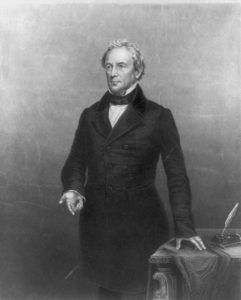Stop Talking, Already!
Edward Everett was one of the most famous orators of his time. Standing before an audience of thousands in a Pennsylvania field on a cold winter’s day in November 1863, he delivered one of the impassioned speeches that made him famous. His two-hour speech reportedly captivated the crowd.
The poor fellow who was scheduled to speak after him had only prepared a two-minute speech.
The man was Abraham Lincoln, and the speech was the Gettysburg Address.
Less is more.
ACCOMPLISH MORE BY SAYING LESS
Most media interviewees are experts in their fields. They have a lifetime of acquired learning in their subject, and could easily pontificate for hours about even the smallest detail. Their expertise rarely fails to impress at dinner parties, and they are regarded as wise counsel amongst friends.
But in the setting of a media interview, they almost always say too much.
Perhaps they feel the need to demonstrate the depth of their knowledge in an attempt to build their credibility. Maybe they think that giving a reporter extensive background is helpful. Or perhaps their nervousness propels them to chatter endlessly. Regardless of the reason, they’ve lost total control of their message, and are inevitably disappointed by their quote in the resulting news story.
Instead of downloading raw information to members of the press, interviewees should prepare no more than three main message points (single sentences) prior to the interview. During the interview, questions should be answered directly – but quickly – before transitioning to a prepared message, story, statistic, or sound bite (read more about creating winning media messages here).
In general, try to keep your answers to 30 seconds or less; complicated questions can occasionally require up to a full minute. By doing so, the audience stands a much better chance of actually remembering your most important points. Remember – even the smartest audience won’t be able to recall everything you said. But they will remember the highlights – if they remain unburied by nonessential verbiage.
Remember the lesson of Edward Everett. Stop talking, already.
Is your executive team long overdue for a media training session? Please contact us to learn more about our customized media training workshops.
Related: Avoid The Seven-Second Stray: Your Message Is Your Lifeboat
Related: Five Ways to Avoid Being Misquoted




Completely agree, Brad.
That problem popped up more than a few times during my military public affairs career. We would prep someone for an media interview, and they’d walk into the setting and forget everything.
Reporters would start asking questions, and the responses would go on and on, describing everything in military jargon and techno speak. Completely drowned out the messages we coached and practiced on.
But I suppose the only thing worse were those who felt compelled to answer reporters’ questions in five words or less. 😉
John,
Very good point regarding the opposite probelm: overly-short, clipped answers. As you inferred, those are as problematic as lengthy answers. I often find lawyers to be the worst offender of that rule – they tend to treat media interviews as a deposition, and give suspiciously short answers as a result.
As the expression says, everything in moderation (even moderation). Answers that range between 30-60 seconds are generally best.
Thanks for your comment!
Brad
Less is more…kind of reminds me of that other (in)famous saying: less talk, less mistake. 🙂
Okay, okay, I’ll stop talking now…